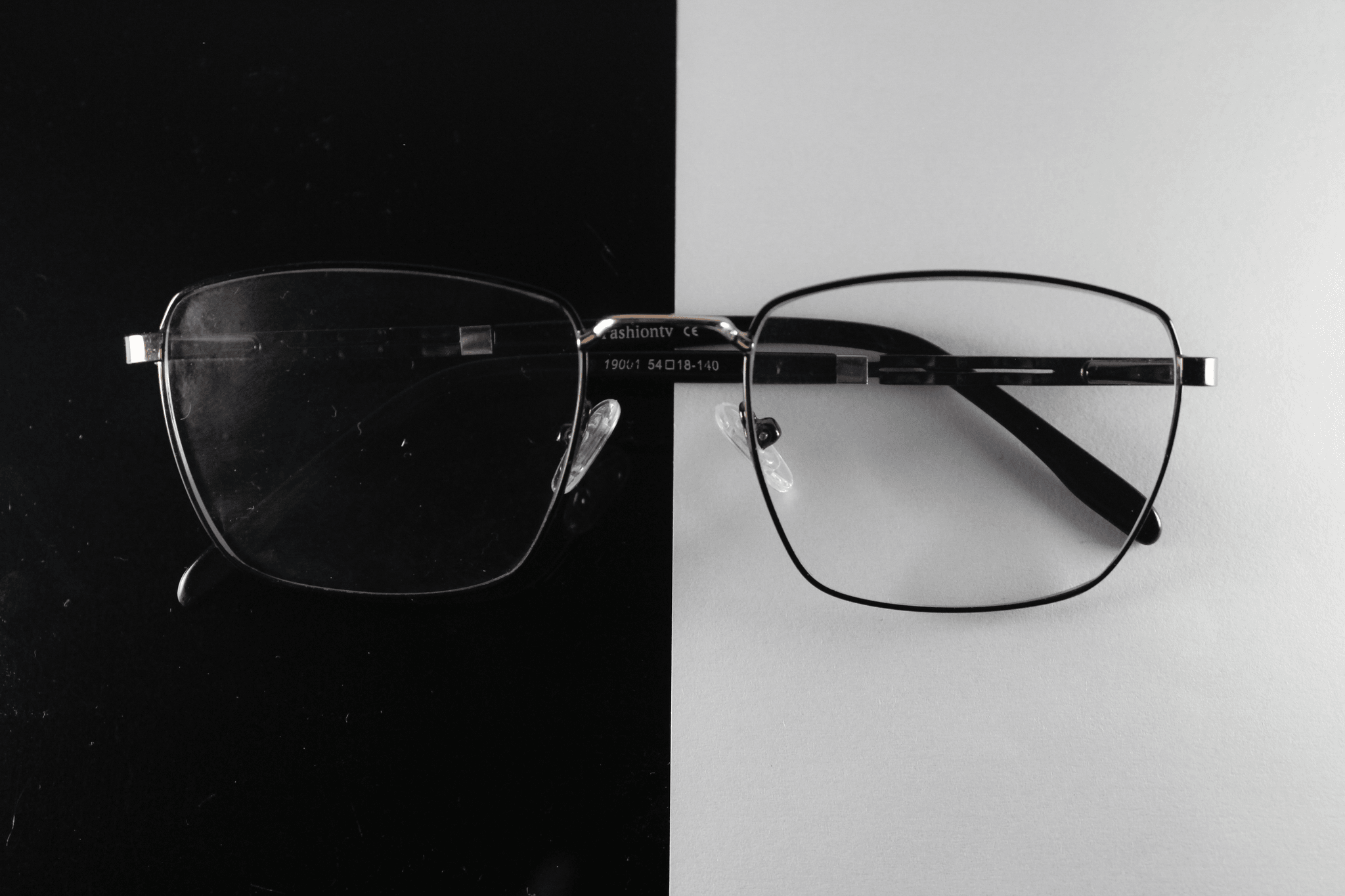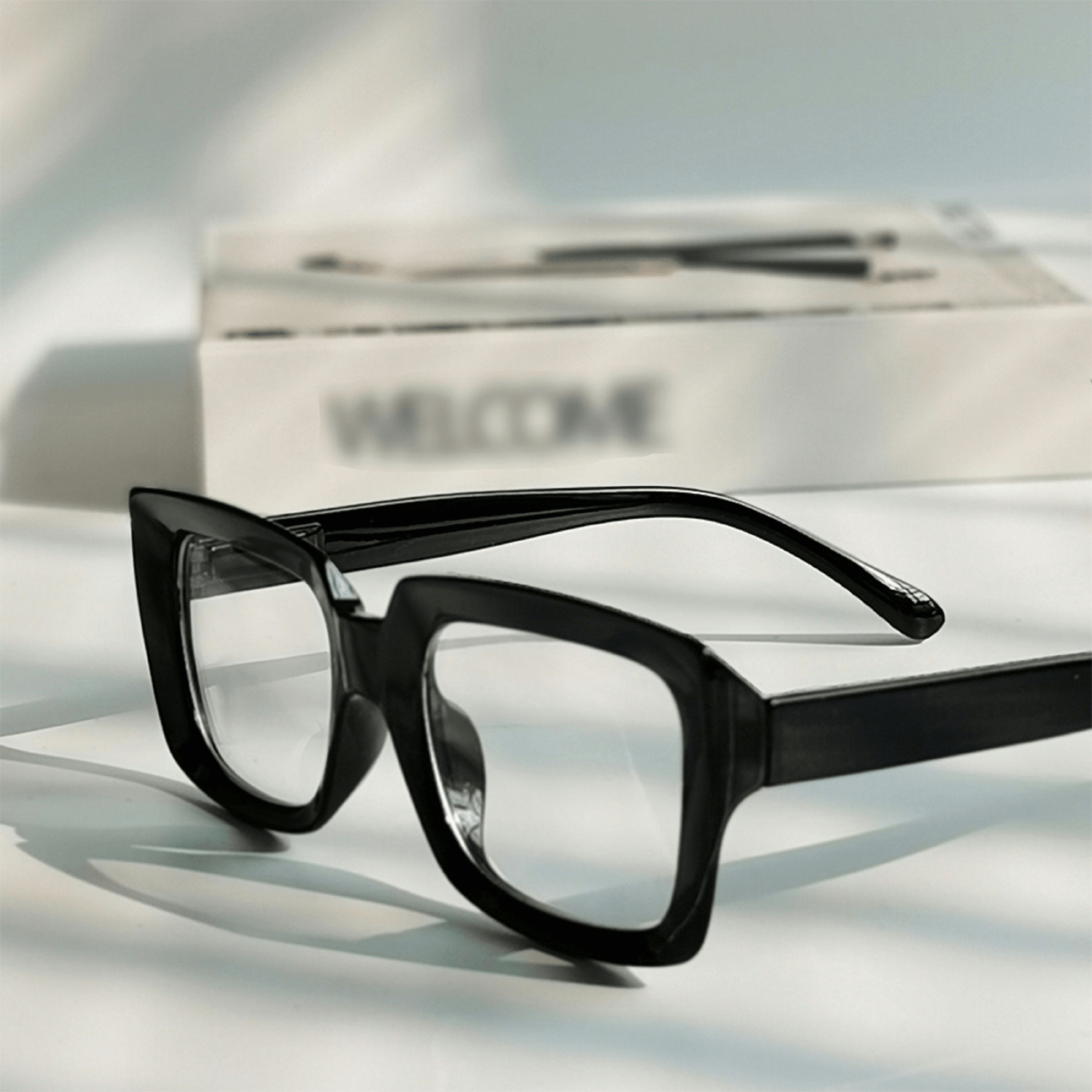Introduction

Choosing the right eyewear involves more than just picking a stylish pair of glasses; it’s about understanding the materials that make them unique. In the world of frame materials, acetate and nylon often find themselves in a popularity contest, each boasting its own set of advantages and disadvantages. As we dive into this guide, we’ll explore acetate vs nylon frames, helping you navigate your options to find the perfect fit for your personal style and needs.
Understanding Frame Materials
Frame materials play a crucial role in determining not only the look but also the functionality of your eyewear. Acetate frames are made from a plant-based plastic that offers vibrant colors and patterns, while nylon frames are known for their lightweight and flexible properties. By understanding these materials better, you can make an informed choice between acetate vs polycarbonate frames or even delve into comparisons like acetate glasses vs plastic.
The Popularity Contest: Acetate vs Nylon
Acetate is favored for its aesthetic appeal and variety of designs, while nylon is often praised for its durability and lightweight comfort. This popularity contest isn't just about looks; it's also about weighing factors like acetate frames pros and cons against those of nylon to see which aligns better with your lifestyle.
Choosing the Right Eyewear
Selecting eyewear that suits you involves considering both style preferences and practical needs. Whether you're drawn to the bold colors of acetate or the sleekness of nylon, it's essential to think about how each material will perform over time—especially when comparing options like acetate vs metal frames or even acetate vs titanium glasses. Ultimately, finding eyewear that complements your unique style while providing comfort is key to making a confident choice.
Acetate Frames Overview

What Are Acetate Frames?
Acetate frames are crafted from a type of plastic derived from natural sources like cotton and wood pulp. This unique material allows for vibrant color options and intricate patterns that can elevate any eyewear collection. Unlike metal or titanium alternatives, which may offer durability but lack in aesthetic variety, acetate frames provide an appealing blend of style and comfort.
Advantages of Acetate Frames
One of the standout benefits of acetate frames is their lightweight nature, making them incredibly comfortable for all-day wear—perfect if you're comparing acetate vs metal frames or even looking into options like acetate vs titanium glasses. Additionally, they come in an array of colors and designs that can match any personality or outfit; this versatility is hard to beat! Plus, they are hypoallergenic, making them an excellent choice for those with sensitive skin.
Disadvantages of Acetate Frames
However, it's not all sunshine and rainbows when it comes to acetate frames; they do have their drawbacks too—hence why it's crucial to weigh the pros and cons when considering options like acetate glasses vs TR90 materials. For instance, while they are generally durable, they can be prone to scratches more than some other materials like polycarbonate or nylon. Moreover, if you drop them frequently or expose them to extreme temperatures, there’s a chance they could warp or break—definitely something to keep in mind!
Nylon Frames Explained

What Are Nylon Frames?
Nylon frames are crafted from a type of plastic known as polyamide, which is renowned for its strength and elasticity. Unlike acetate, which is derived from natural sources like cotton or wood pulp, nylon is entirely synthetic, making it resistant to certain environmental factors. This material allows for the creation of sleek designs that can withstand daily wear and tear without compromising style.
Pros of Nylon Frames
One of the standout features of nylon frames is their incredible durability; they resist bending and breaking under pressure, making them ideal for sports enthusiasts or those with an active lifestyle. Additionally, nylon's lightweight nature ensures that wearers experience comfort throughout the day—no more pinching noses or sore ears! Another advantage lies in their affordability; compared to acetate vs metal frames or acetate vs titanium glasses, nylon offers a budget-friendly option without sacrificing quality.
Cons of Nylon Frames
However, it's essential to consider some drawbacks when weighing acetate vs nylon frames. For instance, while they excel in durability, they may lack the luxurious feel often associated with acetate glasses vs plastic options. Moreover, color choices can be more limited compared to the vibrant hues available in acetate frames pros and cons discussions; this might not appeal to fashion-forward individuals looking for unique styles. Lastly, while they are generally comfortable, some users report that certain designs can feel bulkier than their acetate counterparts.
Comparison: Acetate vs Nylon Frames

Durability Showdown
In the durability department, acetate frames generally hold up well but can be susceptible to scratches and bending under stress. On the other hand, nylon frames are renowned for their resilience and flexibility, making them less prone to breakage during everyday wear. When weighing acetate vs nylon frames, consider how rough you might be on your eyewear; if you're active or prone to accidents, nylon might just edge out acetate in this showdown.
Weight and Comfort Factors
Weight can significantly impact comfort when wearing glasses for extended periods. Acetate frames tend to be heavier than their nylon counterparts, which can lead to discomfort if worn all day long. If you're seeking a lightweight option that won’t weigh you down—especially if you're considering alternatives like acetate vs metal frames or even acetate vs titanium glasses—nylon could be your best bet for all-day comfort without sacrificing style.
Style and Aesthetic Appeal
Aesthetics play a crucial role in selecting eyewear; after all, you want something that complements your unique style! Acetate frames are often celebrated for their vibrant colors and patterns, providing a more classic look that appeals to many fashion-forward individuals. Conversely, nylon frames offer a sleek and modern vibe that is perfect for those who prefer minimalist designs; thus making the choice between acetate glasses vs plastic an essential consideration based on personal taste.
Acetate vs Polycarbonate Frames

When considering eyewear, the debate between acetate frames and polycarbonate frames often surfaces. Both materials have their own unique set of characteristics that cater to different needs and preferences. Understanding these differences can help you make an informed choice tailored to your lifestyle, whether you're leaning towards acetate glasses vs plastic or weighing the pros and cons of acetate frames.
Strength and Flexibility
Acetate frames are known for their strength and flexibility, offering a durable option that can withstand daily wear and tear. They have a certain level of rigidity that allows them to maintain their shape over time, which is one reason why many opt for acetate over other materials like metal or titanium. In comparison, polycarbonate frames are exceptionally flexible, making them less likely to break under stress; however, this flexibility can sometimes lead to a less structured feel than what you might expect from traditional acetate.
Optical Clarity
The material's ability to be polished allows for clearer lenses that minimize distortion—making it ideal for those who prioritize vision quality in their eyewear choices. While polycarbonate lenses are lightweight and impact-resistant—ideal for sports or active lifestyles—they may not offer the same level of clarity as high-quality acetate lenses do.
Cost Considerations
Cost is always a factor when choosing between acetate vs polycarbonate frames; generally speaking, acetate tends to be more affordable than its polycarbonate counterparts due to lower manufacturing costs associated with the material itself. However, investing in high-quality acetate glasses can yield longer-lasting results compared to cheaper alternatives made from plastic or low-grade materials. Ultimately, understanding your budget alongside the long-term benefits of each frame type will help guide your decision-making process.
Acetate Glasses vs Plastic

Feel and Look
Acetate frames are known for their luxurious feel, offering a smooth texture that feels great against the skin. In contrast, standard plastic frames tend to have a more rigid feel, which can sometimes come off as less sophisticated. When comparing acetate vs nylon frames or even acetate vs metal frames, it's evident that acetate offers a richer palette of colors and patterns, allowing for more personalized expressions in eyewear design.
Long-term Usage
In terms of long-term usage, acetate glasses generally outshine regular plastic options due to their durability and resistance to wear over time. While both materials can last years with proper care, acetate's ability to resist fading makes it a preferred choice for those who want their eyewear to maintain its vibrant appearance. Additionally, when you consider acetate vs polycarbonate frames or even acetate vs titanium glasses, it's clear that acetate provides a balance between longevity and style that many users appreciate.
Environmental Impact
The environmental impact of your eyewear choices shouldn't be overlooked; after all, sustainability is becoming increasingly important in today's fashion landscape. Acetate is often derived from renewable resources like cotton fibers or wood pulp, making it a more eco-friendly option compared to traditional plastics made from petroleum-based products. As we explore the differences between acetate glasses vs TR90 or other synthetic materials, it's essential to recognize how your frame choices contribute not only to your personal style but also to broader environmental considerations.
Conclusion

As we wrap up our exploration of frame materials, it’s clear that the choice between acetate vs nylon frames is not a straightforward one. Each material brings its own set of advantages and disadvantages, which can significantly impact your comfort and style. Ultimately, the decision will come down to your personal preferences and lifestyle needs.
Final Verdict on Acetate vs Nylon
When weighing acetate frames pros and cons against those of nylon, both options have their unique strengths. Acetate frames are celebrated for their vibrant colors and stylish designs, while nylon frames excel in flexibility and lightweight comfort. If you're after durability with a touch of flair, acetate might be your go-to; however, if you prioritize resilience and an active lifestyle, nylon could take the crown.
The Importance of Frame Fit
Regardless of whether you choose acetate vs metal frames or opt for acetate vs titanium glasses, proper fit is crucial for both comfort and functionality. Ill-fitting eyewear can lead to discomfort or even headaches—definitely something to avoid! So when selecting your frames—be they acetate glasses vs plastic or any other combination—make sure they sit well on your face for that perfect blend of style and ease.
Exploring Your Unique Style with Daposi
At Daposi, we believe that eyewear should be an expression of individuality! Our commitment to bringing your vision to life means we support innovative designs tailored just for you—whether through custom styles or eco-friendly materials. So why settle for ordinary when you can explore unique concepts that resonate with your personal aesthetic? Bring Your Vision to Life: Beyond Eyewear, Beyond Expectations! 🌟
